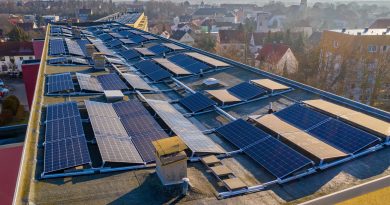Unlock Savings with Efficient Solar On-Grid Solutions
Solar On-Grid: Empowering the Future of Energy
The world is at a turning point as the demand for sustainable energy sources continues to grow. Solar power has emerged as a leading contender in the race to combat climate change and reduce dependence on fossil fuels. One of the most popular and effective ways to harness the sun’s energy is through solar on-grid systems. In this blog, we will delve into the intricacies of solar on-grid, exploring its benefits, technology, and the promising future it holds.
Benefits of Solar On-Grid:
1. Clean and Renewable Energy:
Solar on-grid systems directly convert sunlight into electricity, producing clean and renewable energy. Unlike traditional fossil fuels, solar power has virtually no greenhouse gas emissions, making it an environmentally friendly choice. By opting for solar on-grid, you contribute to a sustainable future and reduce your carbon footprint.
2. Cost Savings:
Once installed, solar on-grid systems can significantly reduce electricity bills. As the system generates electricity during peak daylight hours, excess energy can be fed back into the grid, earning credits or monetary compensation through net metering systems. This feature not only offsets energy costs but also provides additional income opportunities.
3. Grid Independence:
Solar on-grid systems allow homeowners to harness the sun’s energy while remaining connected to the electrical grid. This ensures a seamless and reliable power supply, compensating for periods of insufficient sunlight. It eliminates the need for costly battery storage systems, saving both money and maintenance.
Technology Behind Solar On-Grid:
1. Photovoltaic (PV) Panels:
The heart of solar on-grid systems lies in photovoltaic panels, also known as solar panels. These panels consist of numerous solar cells that absorb sunlight and convert it into direct current (DC) electricity.
2. Inverter:
To make the electricity generated by the solar panels usable, an inverter is used to convert the DC power into alternating current (AC) power that matches the grid’s frequency and voltage. Inverters also enable the system to synchronously feed excess energy back into the grid.
3. Net Metering:
Net metering is the key mechanism through which solar on-grid systems interact with the electrical grid. It allows homeowners to export excess energy to the grid, earning credits during sunny periods, and import power when needed, without disruption. Net metering is a critical component of the on-grid system, enabling seamless integration with the existing power infrastructure.
Promising Future of Solar On-Grid:
1. Renewable Energy Expansion:
Governments worldwide are recognizing the potential of solar on-grid systems and implementing policies to promote their adoption. Incentives such as tax credits, grants, and feed-in tariffs are being offered to homeowners and businesses, making solar on-grid more financially viable and increasing its popularity. This support is driving research and development, leading to improved technology and even more efficient solar systems.
2. Energy Independence:
Solar on-grid systems grant individuals and communities greater energy independence. By generating their own electricity, they become less reliant on centralized power stations and vulnerable to potential outages or price fluctuations. Furthermore, solar on-grid systems empower households and businesses, allowing them to control their energy consumption and costs.
Conclusion:
Empower your savings with SolarClue®’s efficient on-grid solar solutions. Seamlessly connected to the utility grid, these systems optimize electricity usage, reducing bills significantly. Homeowners and businesses can enjoy financial advantages through potential savings and government incentives. With a shorter payback period and expert installations, SolarClue® accelerates your return on investment. Business owners benefit from reduced operational costs and long-term financial sustainability. Monitor and enhance your financial performance with advanced system monitoring solutions. Experience the synergy of financial gains and sustainable practices. Contact SolarClue® today and unlock savings with the power of on-grid solar solutions for a brighter, cost-effective future.
Solar on-grid systems are connected to the utility grid, enabling seamless exchange of electricity between solar panels and the grid.
In sunlight hours, solar panels generate electricity, with excess sent to the grid. During non-sunlight hours, power is drawn from the grid as needed.
On-grid systems reduce electricity bills by utilizing the grid as a virtual storage facility, eliminating the need for extensive energy storage.
Absolutely. On-grid systems offer potential savings through reduced electricity bills and, in some regions, through net metering credits.
The payback period varies but is generally shorter due to reduced bills. SolarClue® offers efficient installations to accelerate returns.
Yes, SolarClue® guides users to maximize benefits from available government incentives, enhancing the financial appeal of on-grid systems.
Certainly. On-grid systems allow businesses to cut operational costs and contribute to sustainability, providing long-term financial advantages.
SolarClue® provides advanced monitoring solutions, empowering users to track and optimize system performance for increased financial efficiency.
Yes, SolarClue® offers tailored solutions for both residential and commercial spaces, ensuring efficient energy production aligned with diverse financial goals.
Yes, by reducing reliance on conventional power sources, on-grid systems contribute to environmental conservation, aligning financial benefits with sustainable practices.


